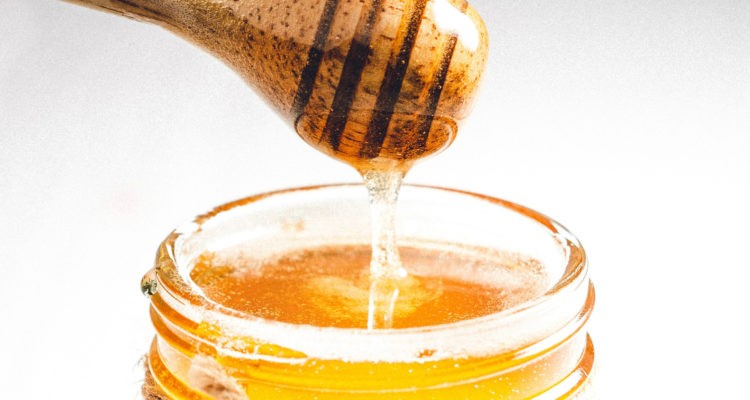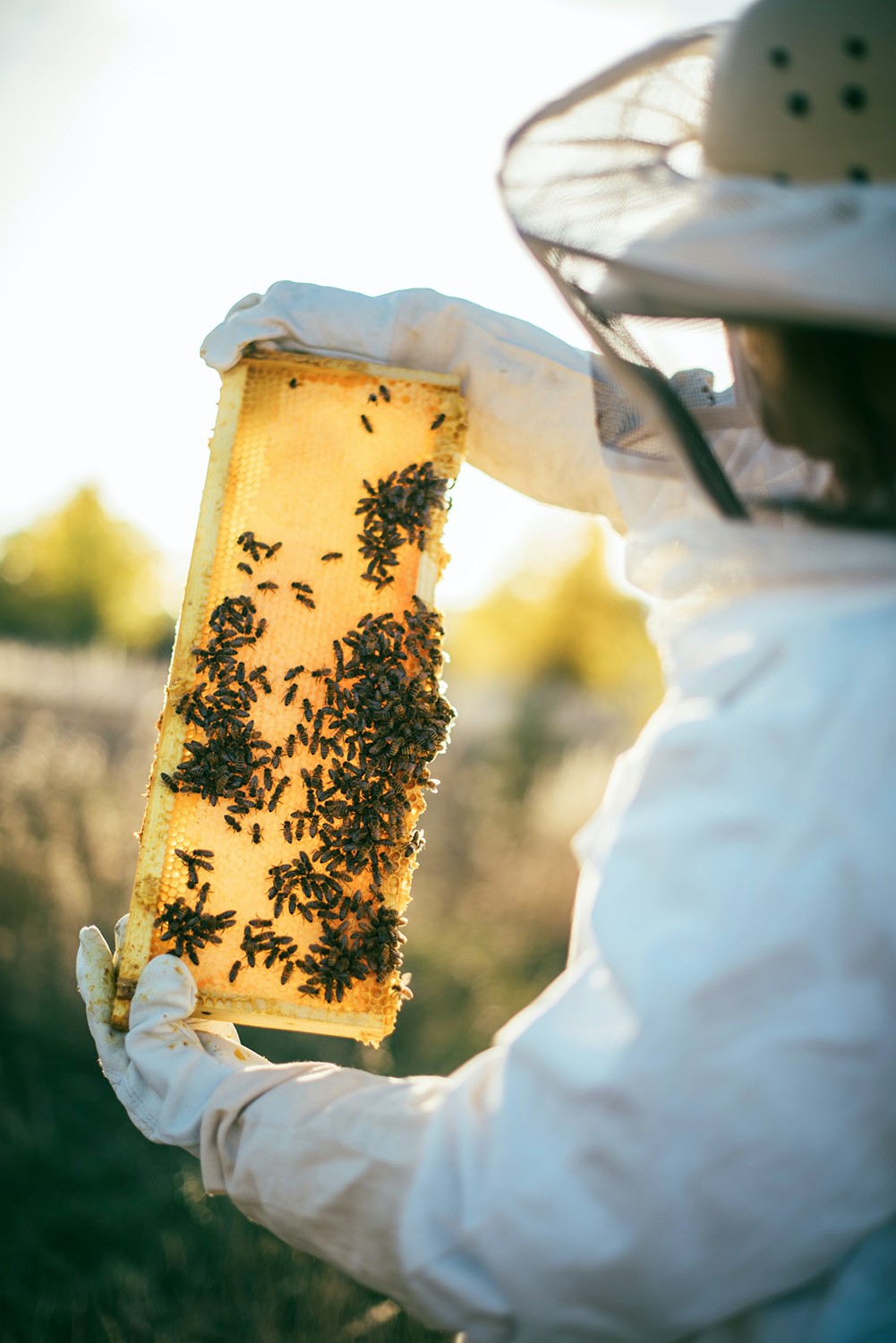Story by Dave Eckert @eatsanddrinkswithdave
This is National Honey Month, a great time to drop in on some of the Kansas City metro’s terrific honey producers. First stop, Messner Bee Farm in Raytown, MO. Run by Rachel and Erik Messner, the farm started keeping bees in 2011. “We already had chickens, a large garden, and we were making soap, so keeping bees for honey seemed like the next fun/hard thing to learn together. We also wanted to keep bees because Erik used to have bad allergies and we’d heard that local honey is good for allergies. What is more local than honey from your backyard?” Rachel mused.
The Messners say they never intended beekeeping to grow into a business, but it has evolved into one. The Messners utilize natural beekeeping practices. They make and sell all sorts of beeswax-based products from lip balm and deodorant to perfume and honey. “Having a job where we get to make a positive impact on the environment and provide people with natural handmade goods makes us endlessly happy. We both LOVE learning. Bees are complicated creatures, and we never run out of new material to devour,” Rachel told me.
I asked Rachel what she wants customers to know about their products. “We want our products to bring people joy! We work hard to develop products that are natural, utilize ingredients from the hive. Honey, wax, propolis and royal jelly are functional and have engaging flavors and aromas. We also want our customers to know that each purchase makes a little impact for the local bee population here in KC,” Rachel said.
You can purchase the Messner’s goods at the Made in Kansas City locations on The Country Club Plaza and in Lee’s Summit as well as their Raytown Farm. To learn more, visit messnerbeefarm.com
It’s all about natural beekeeping and honey-making practices for Jeffrey Hoover at KC Raw Honey in Overland Park. “I have harvested as much as 1,250 pounds of honey from behind my house. A friend who works with me calls it ‘mountain goat harvesting’ given the hills that present a challenge moving bee boxes. Research shows honeybees often do better in urban areas. I use that to my advantage and live with the challenges,” Hoover shared.
Hoover says he started beekeeping in 2009. His first foray was unsuccessful as the bees died over the winter. But Hoover tried again, and this time, the honey stuck. “The next year, while searching Craig’s List, I found a bee operation liquidating their bee business. I brought back 40 complete beehives to my house, fixed them up, sold half to appease my wife, and kept 20 stacked in the garage. With the honeycomb-built-out frames packed with blue ice crystals to protect them, it was the start of my beekeeping journey,” Hoover said.
Hoover is protective of his bees and mindful of their honey production. “I allow the bees to live off their own honey over the winter and only harvest the excess. All my bees are rescue bees from the local area. I do not use any pesticides but only natural means to control pests that must be managed for the bees to survive due to their concentration in a non-natural setting,” Hoover stated.
You can learn more at kcrawhoney.com and order at kcrawhoney.com/purchase
Spike and Patty Durkin, who own Happy Valley Farm in DeSoto, Kansas, run their beekeeping operation a little differently. They sell the honey from the bees on their farm, but a professional beekeeper produces it. The Durkins stay busy with that and a host of other products. “We have a wide range of things going on here depending on the time of year. We have berries, tomatoes, and other produce available in the summer, four different families who bring us eggs, apples for you to make your own apple cider from our presses in the fall, pumpkins from a farmer friend in Lawrence, and, of course, the honey, which is very popular,” Spike shared. “We have pre-bottled honey in different sizes, but we also have honey on tap where people can bring their own jar and fill it up.”
The Durkin’s have discussed bringing bees on the property for years, but, in their research, they discovered tending to them would be a full-time job, and they already had a couple of those. Then, fate intervened. “One day, maybe eight or ten years ago, a guy named John Speckman pulled in our driveway and said ‘this would be a great place for bees’. It took us zero seconds to agree. He collects all the honey, bottles it, provides it back to us, and gives us a break on the price. We give him the space for the bees, full access to our land, and tell him frequently how awesome he is,” Spike smiled.
The Durkins would love to have you take a trip to the farm. To discover more about all they’ve got going and growing, check them out at happyvalleyfarm-ks.com
And, there you have it – three sweet stories to sustain you through National Honey Month.







